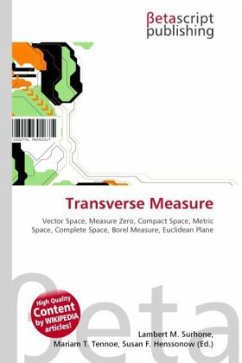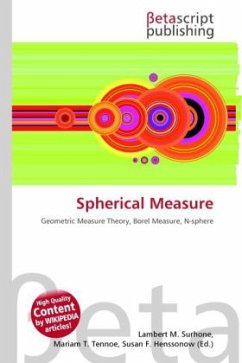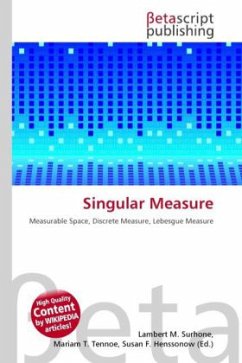High Quality Content by WIKIPEDIA articles! In mathematics, a measure on a real vector space is said to be transverse to a given set if it assigns measure zero to every translate of that set, while assigning finite and positive (i.e. non-zero) measure to some compact set.Let V be a real vector space together with a metric space structure with respect to which it is a complete space. A Borel measure is said to be transverse to a Borel-measurable subset S of V if : there exists a compact subset K of V with 0 (K) + ; and (v + S) = 0 for all v V, where v + S = { v + s in V s in S } is the translate of S by v. The first requirement ensures that, for example, the trivial measure is not considered to be a transverse measure.As an example, take V to be the Euclidean plane R2 with its usual Euclidean norm/metric structure. Define a measure on R2 by setting (E) to be the one-dimensional Lebesgue measure of the intersection of E with the first coordinate axis: mu (E)= lambda^{1} big( { x in mathbf{R} (x, 0) in E subseteq mathbf{R}^{2} } big).
Bitte wählen Sie Ihr Anliegen aus.
Rechnungen
Retourenschein anfordern
Bestellstatus
Storno








